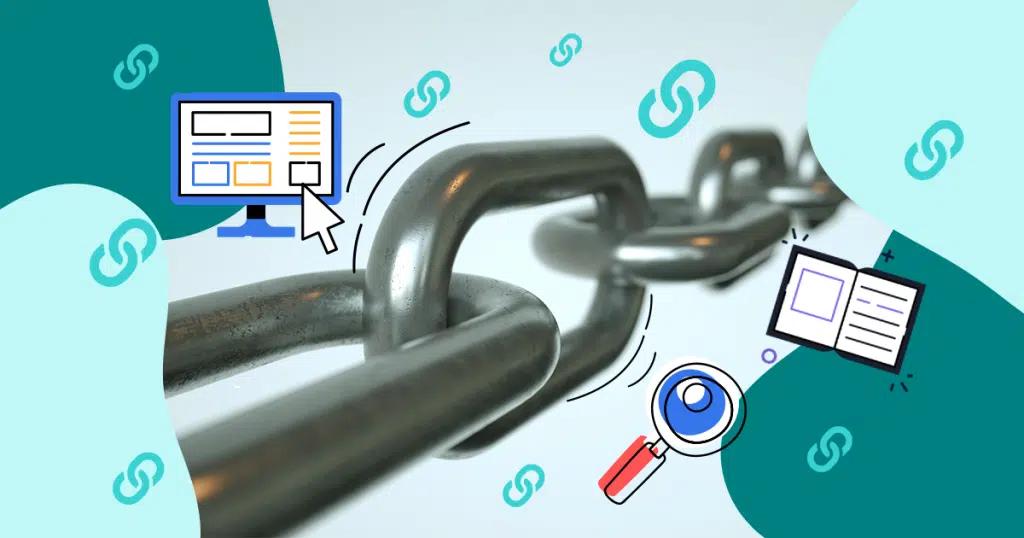
The Benefits of Link Building for Website Content and Best Practices
What is Link Building?
Link building is one of the most effective off-page SEO strategies for driving traffic, improving search engine rankings, and enhancing your online authority. Whether you run a blog, an e-commerce store, or a service-based website, building high-quality links can help your site become more visible and credible. In this article, we’ll explore the benefits of link-building and highlight best practices for success.
Benefits of Link Building
Improves Search Engine Rankings
Backlinks act as “votes of confidence” for search engines. When authoritative websites link to your pages, search engines like Google see this as a sign that your content is valuable and relevant. The more quality backlinks you acquire, the higher your site will rank for relevant keywords.
Increases Organic Traffic
Higher search rankings naturally result in more organic traffic. Additionally, referral traffic from other websites can funnel engaged users directly to your site, bypassing search engines altogether. Links from reputable sources often attract more relevant and high-converting visitors.
Enhances Website Authority
Consistently earning backlinks from established sites boosts your domain authority (DA), which is a metric that reflects your site’s credibility. Higher authority sites are more likely to rank for competitive search terms, making it easier to outperform rivals over time.
Builds Brand Awareness and Trust
When other websites mention your business and link to your content, it builds awareness and positions your brand as an industry leader. Consumers trust recommendations and links from reputable sources, giving your business greater credibility.
Faster Indexing of New Pages
Search engines crawl and index pages through links. The more links pointing to your site (especially from high-authority domains), the faster search engines will find and index your new content. This helps your fresh content get noticed sooner.
Supports Long-Term SEO Efforts
Unlike paid campaigns, the benefits of backlinks can continue for months or even years. Once a quality link is in place, it contributes to your site's authority and visibility indefinitely, supporting your long-term SEO strategy.
Best Practices for Link Building
Focus on Quality over Quantity
Not all links are created equal. A single backlink from a highly authoritative site (like a respected industry publication) is more valuable than dozens of low-quality links from spammy websites. Google Penguin updates penalize sites that use manipulative link-building tactics, so aim for relevance and trustworthiness.
Create Link-Worthy Content
High-quality content that offers value—such as in-depth guides, industry reports, infographics, or case studies—is more likely to attract backlinks. Focus on content that educates, entertains, or solves a problem for your audience.
Leverage Guest Blogging
Publishing guest posts on other reputable websites within your niche is an effective way to earn backlinks. Ensure your content adds value to the host site’s audience and includes natural, non-promotional links back to relevant pages on your website. Also, make sure to reach out to reputed marketing agencies in California that help your website rank top.
Use Broken Link Building
This strategy involves finding broken links on other websites (especially within your industry) and suggesting your content as a replacement. Tools like Ahrefs or Check My Links can help identify these opportunities. This approach benefits both parties: you get a backlink, and the other site fixes a dead link.
Build Relationships with Influencers and Bloggers
Establishing relationships with influencers, bloggers, and industry experts can lead to valuable backlink opportunities. Participate in online communities, attend industry events, and offer insights that build your brand’s reputation and connections.
Utilize Local SEO and Directories
If you’re targeting a specific geographical area, listing your business in local directories like Google Business Profile or Yelp can provide easy, authoritative backlinks. Niche-specific directories are also a valuable way to gain visibility in your industry.
Analyze Competitor Backlinks
Studying your competitors' backlink profiles can reveal new link-building opportunities. Tools like SEMrush or Moz Link Explorer allow you to see where your competitors are earning their backlinks and identify relevant websites to target for your own outreach efforts.
Avoid Black Hat Techniques
Avoid practices like buying links, participating in link farms, or engaging in reciprocal linking schemes. Google’s algorithms are designed to detect and penalize these behaviors, which can damage your rankings.
Monitor and Maintain Backlinks
Regularly audit your backlink profile to ensure all links are high-quality and relevant. Use tools like Google Search Console to track new backlinks and disavow any spammy links that could harm your rankings.
Conclusion
Link building is a critical part of any successful SEO strategy. It not only enhances your search rankings and drives more organic traffic but also builds trust, authority, and brand awareness over time. However, quality and relevance are key—focusing on best practices ensures that your efforts produce sustainable results without running afoul of search engine penalties.
By creating valuable content, fostering relationships within your industry, and strategically seeking backlink opportunities, your website can reap the full benefits of link building and establish itself as a trusted source in your niche.
#SEO #LinkBuilding #DigitalMarketing #WebsiteTraffic #SearchEngineOptimization #ContentStrategy #Backlinks #BrandAwareness #OnlineAuthority #OrganicTraffic #SEOTips







Write a comment ...